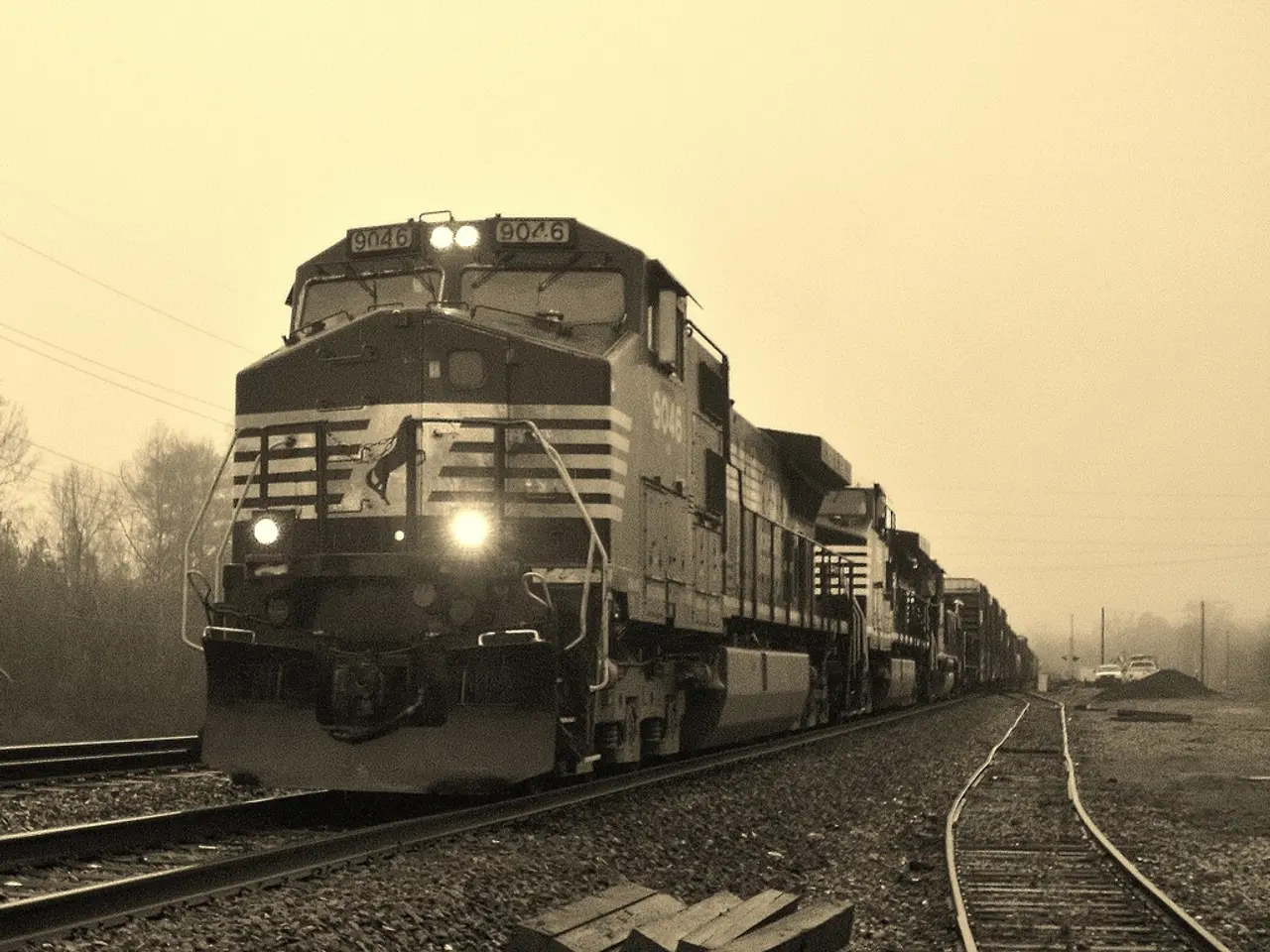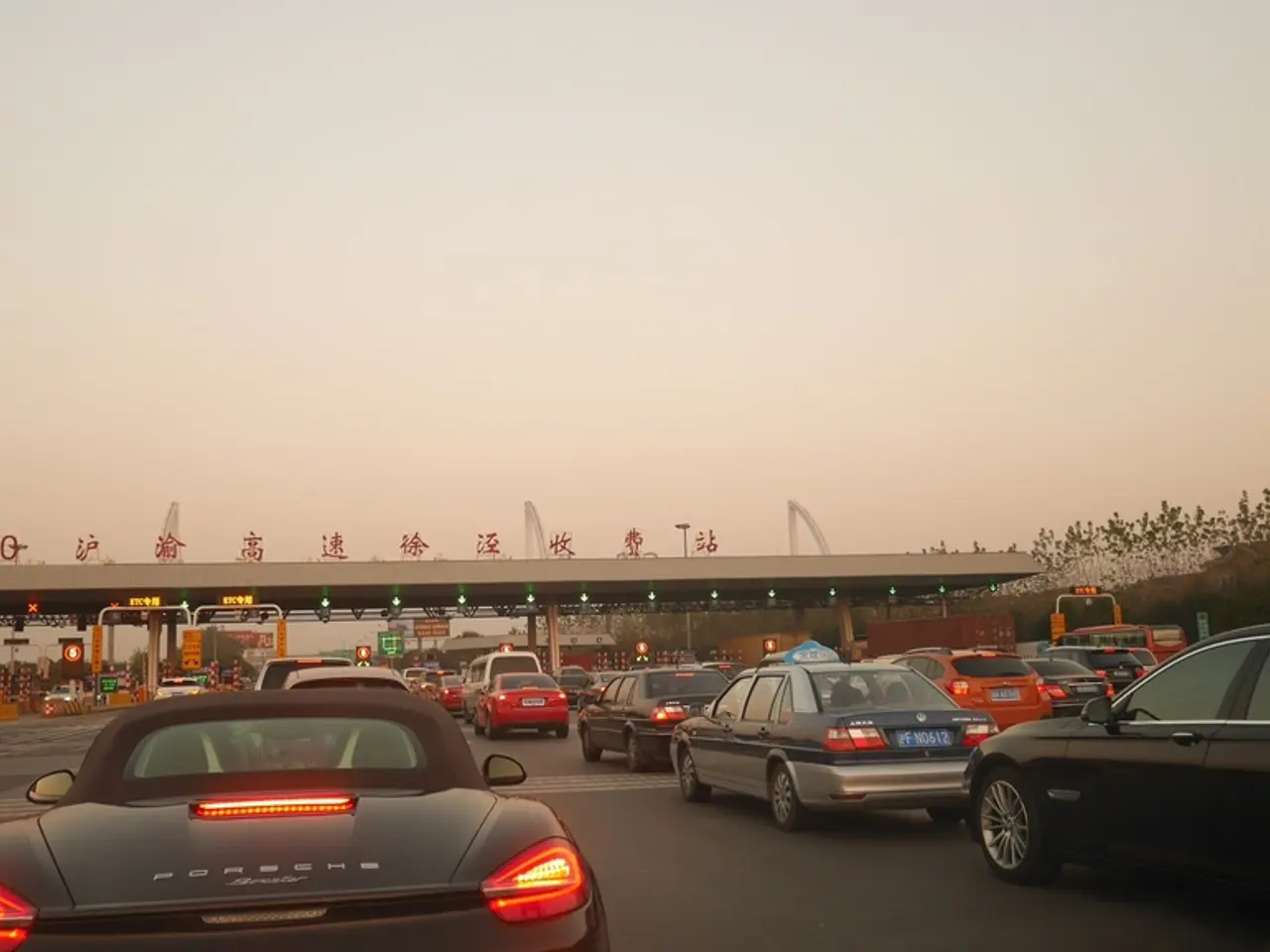Work on the renovation of the Berlin-Hamburg railway line has commenced - Work commences on the refurbishment of the Berlin-Hamburg railroad tract
Major Overhaul of Berlin-Hamburg Railway Line Announced
The Berlin-Hamburg railway line is set for a significant transformation, with works set to commence on August 1, 2025, and last until April 30, 2026 [1][3]. This extensive project, described as a "major undertaking" by Philipp Nagl, CEO of InfraGo [2], will modernize over 180 kilometres of track and involve substantial infrastructure upgrades.
The modernization works will cover the main Hamburg–Berlin line in three sections: Hamburg–Büchen, Büchen–Dergenthin, and Dergenthin–Berlin. Additionally, adjacent branch lines such as Mölln–Büchen–Lauenburg, Hagenow Stadt–Schwerin Süd–Ludwigslust, Ludwigslust–Parchim, Wittenberge–Perleberg–Osterburg, and Kyritz–Neustadt/Dosse will also be modernized [1].
Key aspects of the modernization include the replacement of around 200 switches, construction of six new grade-separated junctions to improve freight traffic flows, full modernization of signaling systems with new interlocking technology, and upgrades to 28 traffic control centres along the corridor [1].
During the closure, approximately 470 trains per day will be affected, causing significant disruptions to both passenger and freight transport. EuroCity trains between Prague, Berlin, and Hamburg will terminate in Berlin; passengers must change trains, with replacement services rerouted via Stendal and Uelzen, adding an average of 45 minutes to journey times [1][4].
Long-distance traffic will be detoured via Stendal and Uelzen until the end of April 2026, and regular regional services will continue until the evening. Freight traffic will also be rerouted [1][4]. Affected commuters can use replacement bus services [5].
Many regional traffic connections will be cancelled or run only on partial routes [6]. Ludwigslust is a city that will be impacted by the detour [7].
While the exact cost figure is not provided, such corridor-wide "Generalsanierung" projects typically involve large-scale budgets supported by Deutsche Bahn and coordinated with federal transport authorities [3][2]. Parliamentary State Secretary Ulrich Lange estimates up to 2.5 billion euros will be invested [8].
The project is part of a nationwide strategy to modernize up to 40 highly frequented railway corridors across Germany. Preparations for the Hamburg–Berlin corridor modernization were completed by mid-2025, signaling Deutsche Bahn’s focus on upgrading the high-performance network [2][3].
ICE and IC trains will run once an hour instead of every 30 minutes as before [9]. Replacement traffic will start early on Friday morning [10].
[1] Deutsche Bahn
[2] Deutsche Welle
[3] Bild
[4] Tagesspiegel
[5] Deutsche Bahn
[6] Deutsche Bahn
[7] Deutsche Bahn
[8] Bild
[9] Deutsche Bahn
[10] Deutsche Bahn
In the context of the major overhaul of the Berlin-Hamburg railway line, the community policy and employment policy of Deutsche Bahn will likely undergo adjustments to accommodate the large-scale project, with potential temporary shifts in employment needs due to increased construction work and changes in service schedules. This modernization, involving various finance sectors, particularly the transportation industry, will culminate in improved infrastructure, reducing transportation delays and enhancing the overall efficiency of industry operations.




